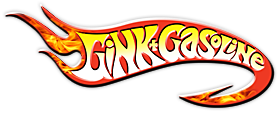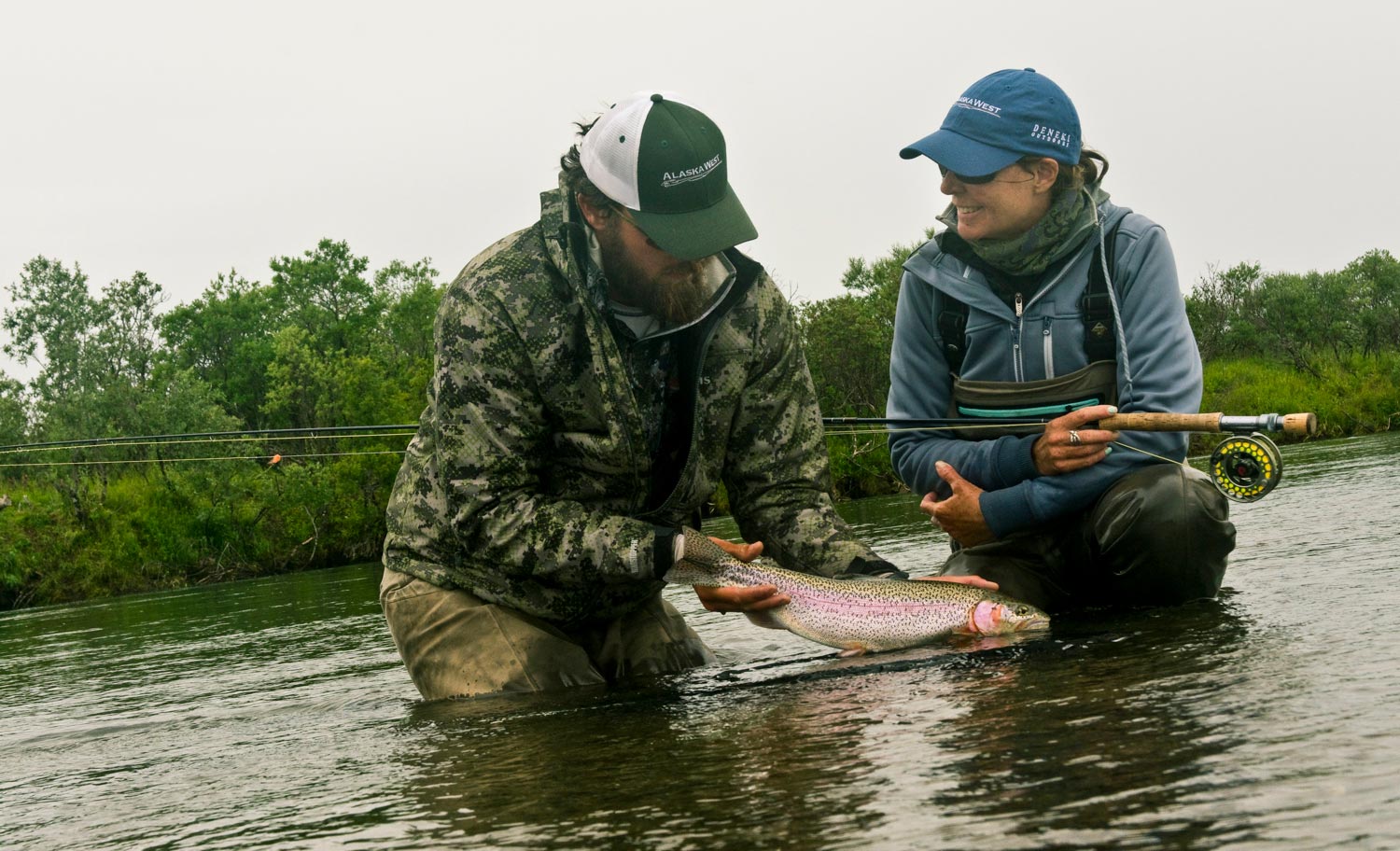By Whitney Gould
The plane, which brought me to Western Alaska is gone.
I’m standing on a remote, empty tarmac. The sky is a herring-gull gray, the air crisp and clean. I am surrounded by tundra. The only visible object is a square box painted white, the airport. People come, pick up passengers and supplies, and disappear as suddenly as they arrived. This is my dream job. I’m an Alaskan guide and I am losing any shred of confidence.
Weeks prior, I had emailed Ed the head guide, asking him what skills I would need to get through the season.
“It’s long hours day after day,” he wrote. “It can become grueling, I won’t lie about that, but it also offers many opportunities for the ‘best of times’… The main thing we look for up there is dependability, a stable personality, and the ability to get along with others while working in a confined social environment for a long period of time.”
Standing there, I thought, maybe I have two of these qualities, but if no one comes to get me, I now have paper to start a fire. Eventually I am picked up.
Nothing in Alaska is wasted. Trips to the airport or town are condensed, combined with supply runs and trips, to the post office and dump. This day is no different. Tyler, the camp hand, drives us eight miles up river to deliver me and supplies to camp. My arrival is no different than that of the guide I am replacing, or the guides who will replace me in five years.
Rick, the camp manager, greets me. After introducing himself, he gives me a tour and tells me to be ready after lunch to gravel the walkways.
Graveling is no easy task. It’s tedious and exhausting. Early season brings high water, so the trick is to find an exposed gravel bar. You take the boat to a bar, fill five gallon buckets with gravel and relocate them back at camp, to make paths. Later I have my first introduction to boat driving. I suck big time. My first obstacle: finding a pull start which I could actually yank. This becomes enormous entertainment for the other guides. The “hipsters” watch with wry smiles. Trevor comes to help and works with me to find a boat I can handle.
It’s easy to distinguish the new guides from the returning guides. Our clothes are smudged with dirt but still hold the basic color and shape of something new. Our hands are covered in bandages. The guys still shave.
The returning guides wear work clothes from boxes, which I suspect were packed, unwashed, at the end of the prior season. Return guides have the kind of brotherhood you get only through time spent living and working together in remote areas. They are using terms such as “legit,” “gagger,” and some have nicknames.
They work quickly and efficiently, constantly giving each other a hard time while testing me and the other new guides to see if we’re going to fit in. I try not to stick out. I try to keep up, an impossible task as it’s been a long time since I’ve lifted or moved anything as heavy as a bucket filled with gravel. I keep quiet, follow and laugh on cue. At dinner I say nothing, which is highly unusual for me. After dinner, Trevor explains the dish team system. My night starts that evening. Thus the pace of work is established.
The next five days are as they have been in years past and since; we get ourselves and camp ready for the first guests of the season. I am tempted to swing a fly to a steelhead-size rainbow trout in a promising channel flanking the camp, but I resist. To work well with this group I need to follow the program. We soon begin to work as a cohesive group and this enables us to guide as a team.
Teamwork is pivotal while guiding in the Alaskan bush. The ability to work as a unit is the most important skill needed to survive an arduous season. I am reminded of Ed’s words. It is this “team, no, family,” that keeps the returning guides sharp, and the new guides building upon the following skills to make it through a full season in Western Alaska.
Here are the skills you’ll need to be an Alaska guide
Boating Skills:
You’ll need to be be comfortable and relaxed while driving a jet boat, as well as competent on the oars.
A Willingness to Learn:
Reading water and fishing skills can be learned. Fishing for anadromous fish varies and changes from year to year, with fish runs and water levels. It’s about finding a rhythm and recognizing a good idea from a bad one. If something’s not working, move on. Say, “this isn’t what I thought It would be.” Your guests will respect honesty over saving face.
Becoming an Expert Without Being Rude or Overly Arrogant:
You’re the captain of your boat, but you’re also in the service industry. Listen and communicate well.
Working Well Under Pressure and with Little Sleep:
There is not much I can say about this, other than, rather than alienating everyone, be a professional.
The Ability to Fish Both Conventional Gear and the Fly:
You will need to adapt to your guests’ gear and style.
Understand Who You Are Guiding and Who You Are Guiding For:
Most of the lodges have an established program along with a client personality. “Trust the Process,” with a little research you can figure out what works for you.
Look the Other Way When Needed:
If you’re not going to be part of the dirty sock jokes, rather than getting offended, find something else to do. This can also be said when dealing with guides from other camps as well. Never let someone set out to give you a hard time on the river ruin your day. Rather than react, do what is right for you and remain professional. Also if a client does something silly don’t call them out.
Know your job:
Above all else, guiding is ensuring that your guests are having fun, are comfortable, and safe at all times.
If this sounds like your skill set, enjoy your time in Alaska!
Whitney Gould Gink & Gasoline www.ginkandgasoline.com hookups@ginkandgasoline.com Sign Up For Our Weekly Newsletter!


I have been lucky enough to have fished with Whitney when she was guiding in Alaska. She is a true professional. Need to go and fish with her in Montana.
Great article!
Whit’s a trooper, and this has been recounted by her on several occasions – obviously made an impression on her.
Going to hook up with her in a couple of weeks either on my home waters around Ennis, or on her new home up on the Missouri. Either way I’m sure we will have a lot of fun together.
Like your read!!!